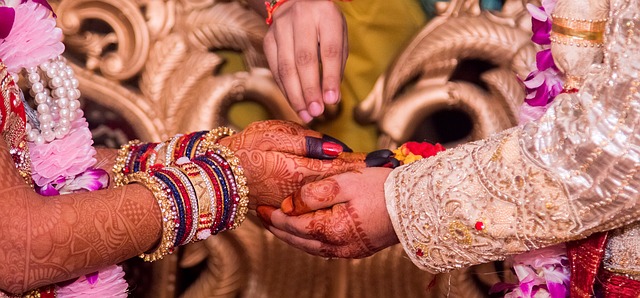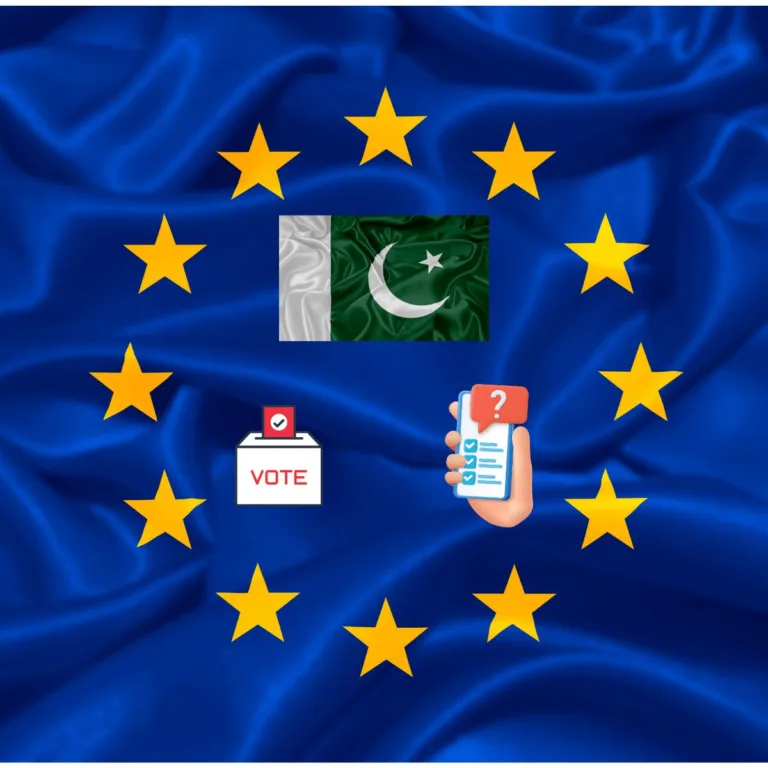Prologue: In the past five years I’ve transitioned through various levels of financial independence as I have studied and worked abroad and lived as a single male. Interestingly, childhood lessons continue to stick with me and seem to follow me around as I make my yearly trips back home. These lessons manifest most profoundly during those so-called ‘wedding seasons’ (a misnomer I might add for every season seems to be a wedding season in Karachi). Where the most contentious issue often boils down to marriage with an ‘outsider’ a.k.a a gory or gweilo.
On weddings and familial ties
In this post I will highlight two popular arguments desi-families make to dissuade marriages with foreigners. I want to understand whether these are sound arguments or personal choices disguised as such. I hope readers will see that this reasoning can be generalised to many other factors, particular those based around age, sect, baradari (community), culture (favoured in Pakistan) that influence decisions to tie the knot.
I neither condone nor condemn a particular choice. I quite respect choice and right of opinion what I do not approve of is when people collate matters of choice with their supposedly reasonable arguments. Because when we mix arguments with value systems, we tend to defy rationalisation; we refuse to change our arguments even when underlying assumptions change. We mistakenly assume that our argument is sound when actually we are imposing our belief and tailoring the arguments to fit those beliefs. For instance,
1- When we say that familial ties trump all other:
Most of us born-raised in the subcontinent are taught to view family relations through the assumption that material benefits of maintaining strong extended familial ties inherently trump all other ties. Through this assumption we argue that marrying a Pakistani is more beneficial then a non-Pakistani since same nationality makes it easier to find mutually beneficial relationship when two families come together.
However, when this assumption is challenged; like when one family is more upwardly mobile or there is mistrust between the two or any other reason, it becomes logical, even necessary to modify our argument. Logical people maintain and strengthen ties with those who they trust or see some form of a benefit. Not necessarily monetary, many times it is an emotional benefit when a couple can sustain each other through thick and thin. Now it may be that we find many such trust worthy people in extended families but is that necessarily so? Many times we have such amazing relationships at various levels with our friends, coworkers, bosses, subordinates, mentors etc. Why should then when it comes to choosing potential partners must we restrict to certain families, sects or nationalities?
2- Social cost of marrying a foreigner will always be higher – Loag kya kahiengay? (what will people think?)
Social cost is a qualitatively complex phenomenon so its difficult to reduce it simply to defying ones societal norms. Over here I’ll just take one aspect of the cost; the communal shamming or loss of our gayrat (honour) when knots are tied outside established beliefs. The assumption here is that family decision/wisdom is superior to individual life choices since the former is more accordance with Muslim, Pakistani or Asian values.
This assumption is already problematic on two levels; first, is what your family decides for you always more Islamic than your own decisions? Now I am positive that no sane parent or saviour of family traditions will ever admit to this with a straight face. So if we understand this is a flawed assumption why do we take shamming so seriously?
Secondly, what do we mean by Islamic, Pakistani and Asian values to begin with? Are they written somewhere to be followed in letter or spirit or a combination of both? And who decides such combinations and on what authority? This is an old issue. What we can say with certainty about value judgements is that they continuously evolve parallel to socio-economic changes in society, among other things.
So no matter what the arguments we will (and rightly so) cherry pick those that best serve our interests. So why is it so difficult to call a spade a spade and blame socio-economic conditions rather than ‘values’ for marriage decisions?
Resources are better managed in an extended family structure
In a similar vein, a partner with the same passport as yourself is assumed by default to bring greater accountability.
True, accountability could be higher but is this always the case? Yes having the blessings of a rich father in-law who is childhood friends with your father is good, but does this fact alone guarantee that shenanigans in business and work will not occur? I think at best it merely hints it. Hard work, mutual respect, planning and sacrifice still play a crucial role. And this applies to relationships and work ethics generally and is certainly not restricted to familial ties. Even business decisions that centre around leveraging patronage networks are not made by default. They are based on practical and strategic concerns of the parties involve.
A messy middle-ground
Some men of noble origins, faced with such dilemmas took a bold step. They reconciled with the contradictions in arguments of their elders by getting conveniently married with foreigners for better economic and future prospects. At the same time they conveniently also ‘kept’ local wives. One to fulfil their duty and one to fulfil other appetites.
It is interesting how making personal marriage choices is not socially acceptable but what is acceptable though, albeit in hushed tones, is to ruin the life of a women or keep them dependent on the husbands good grace. And in my experience this applies to many patriarchal societies.
My point is not to argue for the irrelevance of family structure or the supremacy of one model of marriage over other. Partner selection, just like many other important decisions in life, is based on individual circumstances and contexts. Indeed most marriages every where in the world, including Pakistan, are based on strategic decisions.
So why do we continue to adhere with this facade of rule of thumbs?
Also see: diagnosing the mela in me











